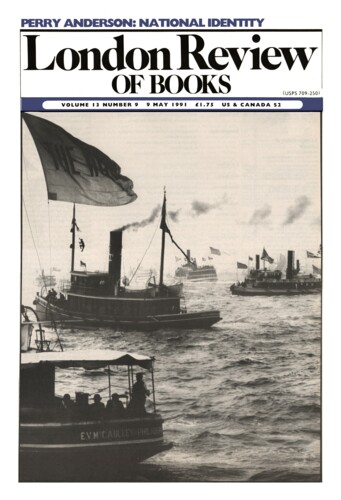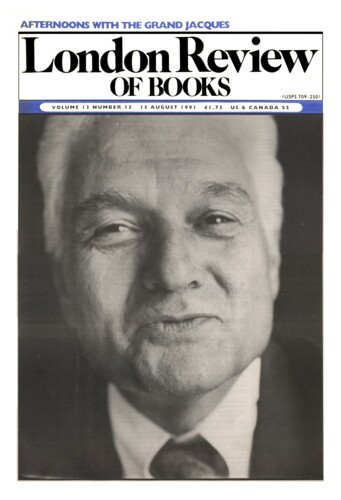With the wind in our shrouds
Mary Beard, 26 July 1990
He has changed the world – not as Mussolini has changed it, with coloured shirts and castor oil; not as Lenin has changed it, boldly emptying out the baby of the humanities with the filthy bath of Tsarism; nor as Hitler, with the fanfaronade of physical force. He has changed it by altering the chemical composition of the cultural air that all men breathe.’’





